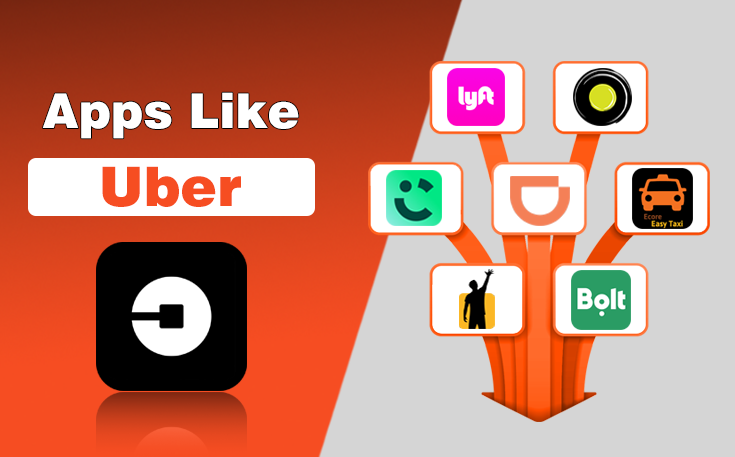Technology has had a significant influence on how we manage our finances. We employ a variety of applications for that. One of them is a digital wallet. It is a app that stores your digital financial information.
Digital Wallet can be utilized for a variety of things, such as bill payment. When used properly, these kinds of software are quite useful.
In this guide, we’ll talk about what is a Digital Wallet, its popular examples, types, and its working method. So, let’s get started.
What is a Digital Wallet?
A Digital Wallet is a software application designed to carry all of your digital finances. It works similarly to real physical wallets. Just like we carry cash in it, this wallet carries digital money.
You can use it to pay for different things directly.
For example, these wallets can help you purchase a movie ticket directly. In a similar way, you can play for a flight ticket as well.
Remember that these features depend on the Digital Wallet software you are using. You may also know that we carry our credit and debit card information in a real wallet as well. The same case is with the digital ones. You can store your card information here and use it whenever required.

How Does a Digital Wallet Work?
Digital Wallet apps usually work on mobile phones. However, they can be accessed on a desktop as well. They utilize a phone’s wireless capabilities to transmit financial data. These capabilities include WiFi, Bluetooth, etc.
Here’s a simple breakdown of its working:
Storing Information
First of all, the wallet stores your financial information. It uses different techniques in order to do that. This includes your bank account details, credit card information, etc. It also makes sure that this information is secured from any external threat.
Payment Making
This is the main part of its work. The user can make payments using it.
This is done in different ways that are listed below:
1.) QR Codes:
QR Codes are a common way a Digital Wallet makes payments. It uses your phone’s camera in order to scan the code. It is a quick way of receiving or making a payment to anyone. Almost all of these apps have this feature.
2.) Near Field Communication:
The second method is Near Field Communication. Its name represents its working well. It is a technique where two nearly-placed mobile devices share data with each other. This data, in this case, is finance-related. It actually utilizes electromagnetic signals to execute this transfer.
3.) Magnetic Secure Transmission:
This is a limited method of making these payments. It is primarily used by Samsung mobile phones. It is the same technology that reads your information when you swipe your card in a credit card reader. However, it is being replaced by Near Field Communication technology now.
Payment Deduction
Lastly, the payment is deducted from your card. Different technicalities make sure that the deducted amount is accurate. This means that if the original payment is $5, the deducted amount is $5 as well. Not more, not less.
What are the Types of Digital Wallets?
There are several types of digital wallets, each with its own set of features and uses. Here’s a breakdown of the main types:
1. Closed Wallets
Closed wallets are digital wallets for specific businesses or companies to facilitate transactions within their own ecosystem. However, these wallets are usually tied to a specific brand or service, which means you can only use them to buy products or services from that company.
For example, Amazon’s “Amazon Pay” or Starbucks’ app are both closed wallets. You can load money into them, but you can only use the balance to shop within that company’s platform or physical store.
Pros
- Easy to use for specific brands or services.
- Rewards and discounts are often available for loyal customers.
Cons
- Limited to use within the brand’s ecosystem.
2. Semi-Closed Wallets
Semi-closed wallets offer more flexibility than closed wallets. They allow you to store money and make payments at multiple partnered merchants, but there are some limitations. You cannot, for instance, withdraw the balance back into your bank account or transfer it to other users.
Popular examples include Paytm, Google Pay, and PayPal. These wallets work with many businesses and can be used for various transactions, like shopping or bill payments.
Pros
- Can be used at a wide range of online and offline merchants.
- Convenient for everyday purchases and bill payments.
Cons
- You cannot directly withdraw your balance
3. Open Wallets
Open wallets are the most flexible and versatile. Mostly, Banks and financial institutions provide open wallets to store money, make payments, and even transfer funds between users. You can also link your open wallet to a bank account, making it easy to add and withdraw funds.
Examples include Apple Pay, Samsung Pay, and Google Wallet. These wallets can be used in stores, online, and even for peer-to-peer transfers.
Pros
- High flexibility with features like fund transfers, withdrawal, and multiple payment methods.
- Accepted by a wide range of merchants.
Cons
- Requires strong security measures since they’re linked to your bank account.
4. Cryptocurrency Wallets
As digital currencies like Bitcoin, Ethereum, and others have gained popularity, cryptocurrency wallets have emerged. These wallets store the private keys needed to access cryptocurrency holdings and perform transactions. Cryptocurrency wallets have two forms: hot wallets (connected to the internet) and cold wallets (offline storage for added security).
Examples include MetaMask, Coinbase Wallet, and Ledger. These wallets are ideal for crypto investors and enthusiasts.
Pros
- Secure and decentralized.
- Great for people interested in cryptocurrency trading or holding.
Cons
- Can be tricky to use for beginners
- Security risks if not properly managed (e.g., losing private keys).
5. Mobile Wallets
Mobile wallets are a popular type of digital wallet stored on your smartphone. These wallets allow you to pay for goods and services directly from your phone, whether it’s online shopping or paying in physical stores using NFC (Near Field Communication) technology. They often integrate with apps and websites that provide a seamless payment experience.
For example, Apple Pay, Google Pay, and Samsung Pay. They can store both credit cards and loyalty cards and offer a complete solution for digital payments.
Pros
- Very convenient and easy to use.
- Offers enhanced security features like biometric authentication (fingerprint, face recognition).
Cons
- Limited by the features of your phone and compatibility with stores
6. Virtual Wallets (Online Wallets)
Virtual Wallets are important software applications or platforms to store money and make online payments. You can link them to your bank account, credit cards, or debit cards. They are often used for online shopping and bill payments, and offer secure transactions with minimal hassle.
Examples include PayPal, Skrill, and Venmo. These wallets allow users to buy goods, transfer money to others, and even send funds to their bank accounts.
Pros
- Convenient for online shopping and payments.
- Can be used globally with international transactions.
Cons
- May have fees associated with sending money or converting currency.
7. Wearable Wallets
Wearable digital wallets are one of the convenient wallets that work with wearable devices like smartwatches or fitness trackers. With wearable wallets, you can make quick payments directly from your wrist without needing a phone or credit card.
For example, Apple Watch (Apple Pay) or Fitbit Pay. These devices use NFC technology, similar to mobile wallets, to complete transactions securely.
Pros
- Extremely convenient for people on the go.
- No need to pull out a phone or card to pay.
Cons
- Limited to devices that support the feature
- May not be supported everywhere.
Examples of a Digital Wallet
Sure! Here are some examples of popular digital wallets, explained in simple terms, with what they are best for:
- PayPal
- Apple Pay
- GooglePay
- Samsung Pay
- Venmo
- Cash App
- Amazon Pay
- AliPay
1. PayPal
PayPal is one of the most widely used digital wallets. You can store money, make payments, and send money to friends or businesses online.
- Best for: Shopping online, sending money to family and friends, and paying for goods or services on websites.

2. Apple Pay
Apple Pay lets you use your iPhone, iPad, or Apple Watch to make payments at stores, apps, or online without needing a physical card.
- Best for: People who use Apple devices and want a quick, contactless way to pay at stores and online.

3. Google Pay
Google Pay is a wallet for Android users that allows you to make payments online, in stores, and send money to friends.
- Best for: Android users who want to make payments with their phones easily and securely.

4. Samsung Pay
Samsung Pay is a mobile wallet for Samsung device owners to payments using your phone, even in stores that don’t accept other mobile payments.
- Best for: Samsung phone users who want to make contactless payments using their devices.

5. Venmo
Venmo is a digital wallet mainly used for sending money to friends, paying for goods, or splitting bills easily.
- Best for: People who want to share money quickly with friends and family, especially for small, everyday payments.

6. Cash App
Cash App lets you send money, buy things online, or even invest in stocks or bitcoin.
- Best for: People who want a simple way to send and receive money, plus extra features like buying and selling stocks.

7. Amazon Pay
Amazon Pay allows you to use your Amazon account to make payments on other websites that accept Amazon.
- Best for: People who already shop a lot on Amazon and want to use the same account to make payments elsewhere.

8. Alipay
Alipay is a digital wallet mostly used in China. It lets users pay for products, services, and even split bills with friends.
- Best for: People living in or traveling to China, or those who often shop on Chinese websites.

How to Pick the Right Digital Wallet?
The above-discussed examples explain that there are a lot of options for these apps. It may confuse some people about picking the right one.
Here are some tips that can help you do so:
- Security should be your priority. Pick an app that offers strong security encryptions. It will help you keep your financial data safe.
- Use an app that uses a multi-authentication factor while making payments. This will ensure no one else uses your app to make a payment.
- It should have multiple payment methods.
- If you own crypto, make sure the app integrates with it.
- It should be compatible with the mobile device you usually use.
- There should be no or very minimum fees related to payments.
Pros and Cons of Digital Wallets
The pros and cons of a Digital Wallet are discussed below:
Pros
- It is a secure way of dealing with finances
- Making payments is quick and easier with it
- It keeps your financial data organized in one place
- You may get some rewards by using certain apps
Cons
- Some merchants and stores may not accept payments through them
- They may not function without Bluetooth or WiFi
Verdicts
Digital Wallet is an application that holds most of your financial information. They are used to make digital transactions directly. Most of these apps are used on mobile phones. Many places accept payment from these apps due to their growing popularity now.
These apps work in a simple way. After saving your data, they use different techniques to make payments. We have discussed their detail in the data given above. Picking the right wallet app can be difficult for some people. So, we have also mentioned some tips regarding it.
Frequently Asked Questions (FAQs)
What is the primary purpose of a digital wallet?
The primary purpose of a digital wallet, also known as an e-wallet or mobile wallet, is to provide a secure and convenient way to store and manage payment information. It allows users to make digital transactions without needing physical cards or cash.
Are Digital Wallets safe?
Yes, Digital wallets are safer and secure than physical wallets as they ensure privacy, security of money, and easy transfers. However, make sure to check the wallet’s credibility, reviews, and trust rate of your chosen one.
Which one is the best digital wallet?
Paypal is the best digital wallet for international transactions with secure and fast payment methods and worldwide access.
Can I pay my utility bills through these apps?
Absolutely. Most of these apps allow you to pay such bills easily.
Need custom app with amazing features?
Get a Quote




